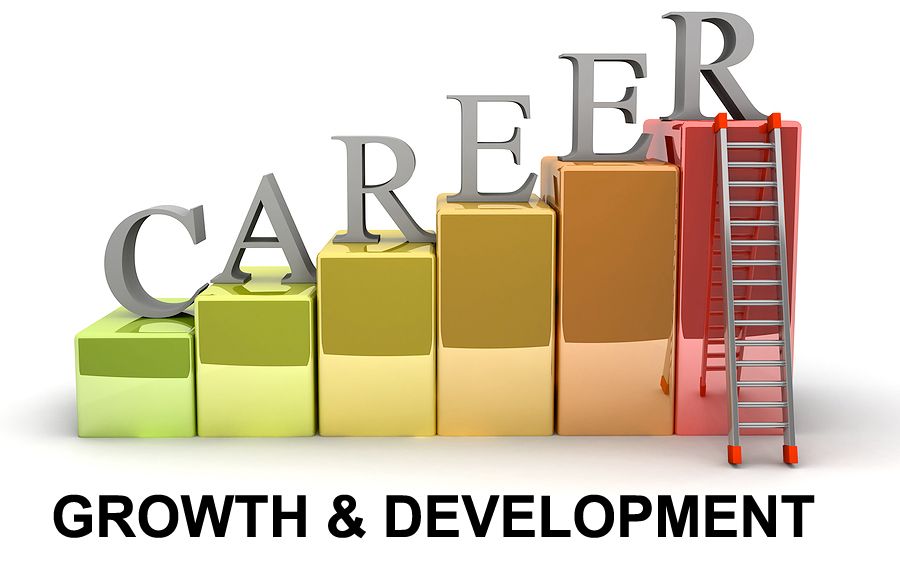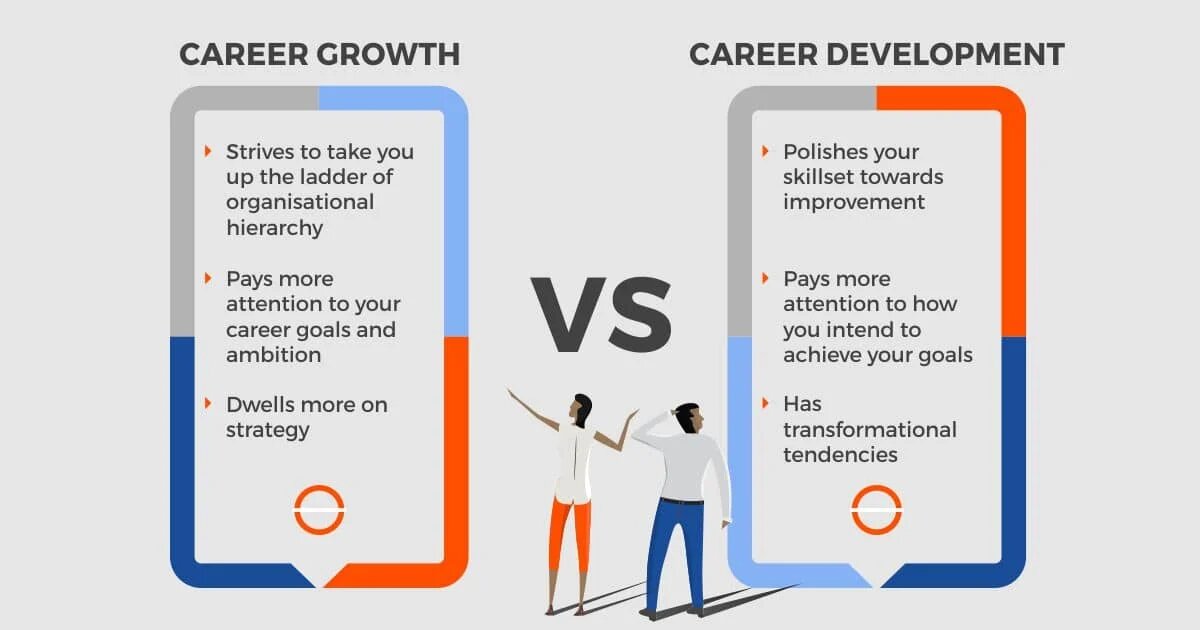Career Tips
Differences Between Career Growth And Career Development

Pitching professional growth vs career development isn’t wholly unrelated, but it also isn’t the same thing. Can you use them interchangeably? The answer is no, but both are critical to your professional growth. It’s time to clarify: they don’t imply the same thing.
We’ll look at what each one signifies and how it affects your career in both the short and long term.
What is Career Growth?
Career advancement is the process of progressing from one level of the corporate hierarchy to another. Promotions are one of the most common ways for employees to advance their careers. For example, if you start as a sales executive at a reputable recruitment business and work your way up to become the Lead, Sales Team within 18 months, this is considered professional advancement. Have you noticed how your designation and responsibilities have changed? This is what happens as you advance in your job.
Career progression occurs when you are hired by a company as a creative designer in 2022 and advance to the position of creative director in 2024. This progress is motivated by personal goals you create for yourself to advance vertically up the organizational hierarchy.
What is Career Development?
Career development is just the process of being better at what you do without necessarily receiving a promotion. Career advancement is more dependent on your skill set and your capacity to change into a source of self-improvement. Career growth is about improving your skill set.
Let’s look at a few examples. If you join a company as a social media manager and six months later you are more adept in the usage of Google Analytics and tools like Sprout Social, particularly when compared to when you first started, this is referred to be career growth. Career advancement helps you become more grounded in your area of specialization.
Professionals Share Their Thoughts on Career Growth and Career Development?
As you can notice, there is a clear distinction between career growth and professional development, but this does not mean they are unrelated. However, let us look at some of the distinctions between the two, as emphasized by several experienced specialists.
1. Naoufel Bechikh – External Auditor
According to Naoufel Bechikh, an external auditor, career progression refers to your advancement along what he refers to as the professional ladder at the organization where you work. He described it as a promotion within a company’s hierarchy.
He, on the other hand, defines career growth as the sum of all the talents you learn over your professional lifetime.
2. Kevin Mathu – Accountant
According to Kevin Mathu, career advancement is the process by which you climb up the organizational hierarchy. In today’s workplace, it is usually a good predictor of your future career path. He defines career development as the activities you undertake to advance and grow your career.
3. Sameh Hendawi – Senior Internal Auditor
The financial expert defined career growth as something that may be accomplished by a consistent effort to improve your talents. This generally has a professional and intellectual aspect to it. Career advancement does not always result in a promotion.
He explained that professional advancement is the process of advancing one step ahead through a promotion. Career advancement is typically accompanied by increased duties, higher pay, and promotion to a higher echelon in the organizational hierarchy.
4. Shahzad Yaqoob – Senior Accountant
The accountant described both professional growth and development as interconnected, but chose the professional Lattice presented in Cleaver’s book. According to Cleaver, a career lattice is a diagonal framework that weaves lateral experiences, adjacent skill growth, and peer networking to advance individuals to any of the roles for which they are qualified.
Shahzad goes on to clarify that there is a significant difference between career growth and career development. He contends that job advancement is heavily dependent on career development.
Shahzad defines professional development as activities that help you advance in your career. This includes formal training in your area of expertise, seminars, webinars, online courses, and opportunities for professional networking.
He also stated that not all professionals are eager in promotions as part of their career development. He said that for individuals who are interested, their employers benefit greatly by aiding them in acquiring the skills required for career advancement.
Differences Between Career Growth and Career Development?

Both are directly related to your career but as we established earlier, they have several points where they part ways.
Career Growth
- Strives to take you up the ladder of organizational hierarchy
- Pays more attention to your career goals and ambition
- Dwells more on strategy
Career Development
- Polishes your skill-set towards improvement
- Pays more attention to how you intend to achieve your goals
- Has transformational tendencies
The Secret to Career Growth and Career Development

To unlock the full potentials of career growth and career development is to understand that you don’t have to pick one. Rather, strive to strike a balance because both of them work together.
Think of career growth as pepper and career development as salt. When isolated, they are still consumable but together, they form a delicious alliance to make a soup/sauce (you).
If you use too much pepper, your soup will become so spicy, eating it becomes difficult and painful. On your career, this makes your job and workplace relationships unpleasant. If you use too much salt, your soup will taste like a cup of seawater and you are likely to create a mess of the things you need to achieve your professional goals.
How to Achieve Both Career Growth and Career Development
The cardinal rule is to avoid concentrating on just one of them. Instead, find a method to give each of them equal attention. When combined, they help you maximize the maximum potential of your profession.
The end goal of all of these suggestions is to acknowledge that advancement is simply one aspect of a career. Organizations that provide significant chances for employee development establish a system in which individuals desire to work long-term. Those organizations retain institutional knowledge while saving on the significant costs associated with turnover.












